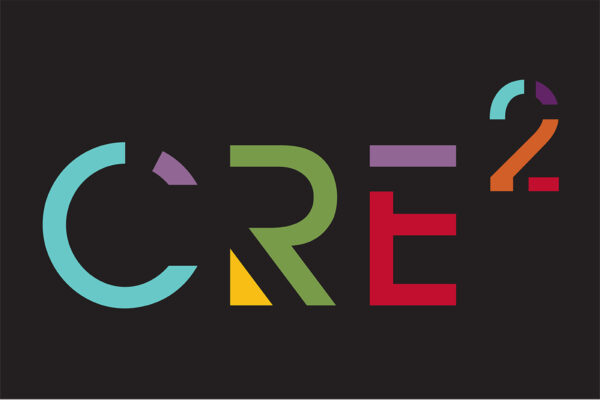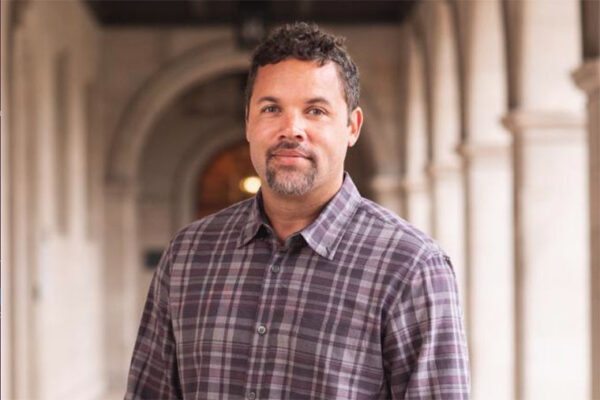Washington University in St. Louis is welcoming the first round of faculty members identified through its race and ethnicity cluster hire initiative, a multiyear effort to build a world-class and interdisciplinary research program on race.
“WashU already has renowned scholars in this field, and this cohort will further our distinction as a university engaged in path-breaking research on race,” Provost Beverly Wendland said. “The varied methodologies on display with this group also offer our students innovative course opportunities. I look forward to the many ways that this cohort, and future ones, will further enhance our research, teaching and learning at WashU.”
Chancellor Andrew D. Martin announced the initiative in the wake of George Floyd’s death as part of a broader effort to address systemic racism and its toll on Black and other racial communities.
The first round of hires are:

G’Ra Asim, who joins the Creative Writing program in the Department of English in Arts & Sciences. Asim, a St. Louis native, is the author of the nonfiction work “Boyz n the Void: a mixtape to my brother” and served as assistant professor of nonfiction writing at Ithaca College. His work has appeared in Slate, Salon, Guernica, The Baffler and The New Republic. Asim fulfills a longstanding need in the creative writing program for a nonfiction writer who writes from a contemporary experience of Blackness.
“Through this hire, we seek to bring a public culture of racial awareness and understanding to Washington University and claim a new prestige and leading role for the university in this field,” according to the Department of English’s proposal.

Eric Corbett, who will join the Brown School and the McKelvey School of Engineering in fall 2022. Corbett studies racial biases in artificial intelligence and designs and tests novel data-driven policies that promote racial equity. Corbett is currently completing his postdoctoral research at New York University’s Center for Urban Science and Progress and most recently worked to create new opportunities for democratic participation in public-sector algorithm use.
“A need exists for novel scholarship at the intersections of computational and social sciences conducted by and with those who experience racial injustice. Hiring in the Brown School and Computer Science and Engineering Department ensures we acquire deep knowledge in both racial disparities and computing domains, while connections with CRE2 and across campus provide additional opportunities for translation into technology and policy that promote racial justice,” according to the joint proposal.

Zakiya T. Luna, who joins the Department of Sociology in Arts & Sciences as a tenured associate professor. Luna served as associate professor of sociology at the University of California, Santa Barbara, and is author of “Reproductive Rights as Human Rights: Women of Color and the Fight for Reproductive Justice.” Luna has studied Black women activists, including activists in St. Louis, social movements and human rights. Luna will help the Department of Sociology, already one of the most acclaimed and diverse in the nation, become the leader in race and ethnicity scholarship.
“Luna’s pathbreaking research on intersectional identity-formation, political authenticity claims and coalitional dynamics within activist organizations demonstrates how racialized processes infuse the emergence, trajectory and impact of movements,” the Department of Sociology proposal stated.

Daniel Scott Harawa, who has been promoted as a tenure-track faculty member at the School of Law. Harawa joined the university in 2019 as assistant professor of practice and serves as director of the Appellate Clinic. Harawa studies how doctrines, institutions and practices within the criminal legal system undermine criminal defendants’ constitutional rights and perpetuate racial subordination.
Two other approved searches from the first round, in sociology and the Brown School, are ongoing.
The Cluster Hire Review Committee, composed of faculty from across schools, evaluated and selected proposals from schools and departments for Wendland’s consideration and helped recruit candidates. Adrienne Davis, former vice provost for faculty affairs and diversity and inaugural director of the Center for the Study of Race, Ethnicity & Equity (CRE²), and Geoff Ward, professor of African and African American studies in Arts & Sciences, led the committee for the first round. Rebecca Wanzo, professor and chair of women, gender and sexuality studies in Arts & Sciences, and Hedwig Lee, professor of sociology in Arts & Sciences and CRE² co-director, are leading the committee’s efforts for the second round.
Approved searches for the second round are:
The departments of Anthropology and Biology in Arts & Sciences and the College of Architecture at the Sam Fox School of Design & Visual Arts are working to fill three assistant professor positions (one in each unit) as part of a multidisciplinary cluster focused on environmental justice.
The departments of African and African-American Studies and Women, Gender and Sexuality Studies are pursuing a senior target of opportunity hire whose work focuses on Black sexuality, queer theory and public health.
The Performing Arts Department and the Department of Romance Languages & Literatures in Arts & Sciences are seeking a joint senior hire in Latinx performance studies with a focus on race and ethnicity studies.
The Education and African and African-American Studies departments are searching for a senior scholar who specializes in education policy.
The Sam Fox School seeks an assistant professor in design futures whose research intersects racial equity and technologies.
The School of Law is seeking a scholar to study the intersection of race, law and social inequality.
Wanzo said the competition for top talent is fierce, but Washington University boasts some advantages.
“This is a moment when a lot of institutions are recognizing their deficits, and so there is a lot of mobility among faculty,” Wanzo said. “WashU has been extremely successful in the recruitment and retention of faculty of color, and so that helps us draw talent. We have a wonderful community of scholars and live in a great city. And the cluster itself is a selling point because it signals WashU is serious about its commitment.”
Editor’s note: Eric Corbett will no longer be joining the Brown School and the McKelvey School of Engineering.


